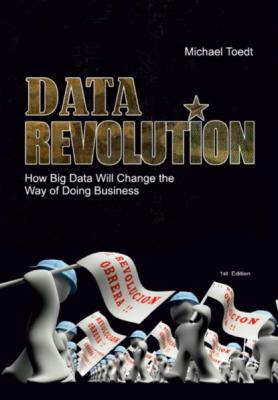Data Revolution. Michael Toedt
Чтение книги онлайн.
Читать онлайн книгу Data Revolution - Michael Toedt страница 2
 8. 2. 3. Shout It From The Rooftops: Marketing A Hotel’s Success
8. 2. 3. Shout It From The Rooftops: Marketing A Hotel’s Success
8. 4. 1. Hospitality Gene: The Beast
8. 4. 2. Hospitality Gene: The Blessing
8. 4. 3. Hospitality Gene: The Payoff
9. „Big Data“ What does Data Protection Law say?
9. 1. 1. A Brief Overview of Data Protection Law and „Big Data“
9. 1. 2. A Glance at the EU Provisions
9. 2. Which Law applies to Hotels in different Countries?
9. 3. The Prohibition Principle and the Separation of a Process into individual Steps
9. 5. What are the Solution Strategies?
9. 5. 1. Solution 1, Consent:
9. 5. 2. Solution 2: Waiving Personal Data
9. 6. Deleting Data & „Big Data“: an insoluble Problem?
9. 7. How does this relate to the Deletion Principle?
9. 8. What may happen in Case of Violations?
10. Who cannot handle Data, successfully kills his business
10. 1. Survival of the Fittest
10. 3. Data know how as corporate asset
Introduction
Data is everywhere. There is no way to stop, deny or avoid it. Big Data is the next economic revolution. After the triumphant success of the Internet, the capabilities of managers to use the endless and steadily increasing amount of data will split companies into those who know what they do, and those who just guess. There will only be winners or losers. Managers need to understand that we are on the verge of a new economic era. The more they listen and learn, the higher the chance to win the data race.
Why is Big Data so important? Big Data can help companies to increase their revenues, improve their profit margins, reduce risks and cut costs. Intelligent use of data supports customer acquisition, allows for higher prices, minimizes the risk of unprofitable investments, improves profit margins, supports the direct distribution channels, and helps to bypass expansive third-party vendors. It also generates customer loyalty and eventually helps to reduce technology, administration and payroll costs. There are manifold reasons to take a deeper look into Big Data.
In medieval times, merchants in the Mediterranean accumulated extreme wealth by trading in spices such as salt. In the very near future, the prosperity of a company strongly correlates with its ability to manage and use customer data. Data can be used to enhance existing and to create new products and services (co-creation), to market the right services at the right time through the right channels, and to provide a personalized service at the different points of interaction and sale.
Huge volumes of data are generated through the increasing use of social media and smart phones, as well as the continuous digitalization. The growth is exponential. This phenomenon is referred to as Big Data.
Experts agree that the Big Data phenomenon will have a significant impact on the structure of organizations and the way companies will work and interact with their customers. Many managers and organizations are still not aware of this fact, or fail to implement the changes, which are necessary to leverage Big Data. The lack of competence and knowledge and the lack of sufficient IT skills within the senior management prevent most companies from generating value from the available assets. The data is usually collected in data silos, which sit in the different departments and are not connected at all. The reason lies in the past decade, IT decisions were mainly driven by operations and were not based on an overall consumer oriented strategy.
One central goal of Big Data is to provide added value to the customer. Thus, it seems logical that the marketing department takes the lead in Big Data initiatives. This, however, requires profound analytical and technology skills on the management level, as well as additional competencies and responsibilities. The quality of marketing within a Big Data environment goes beyond appealing design. It is characterized by a real-time content delivery process, which provides offers and information to the recipients based on their individual needs.